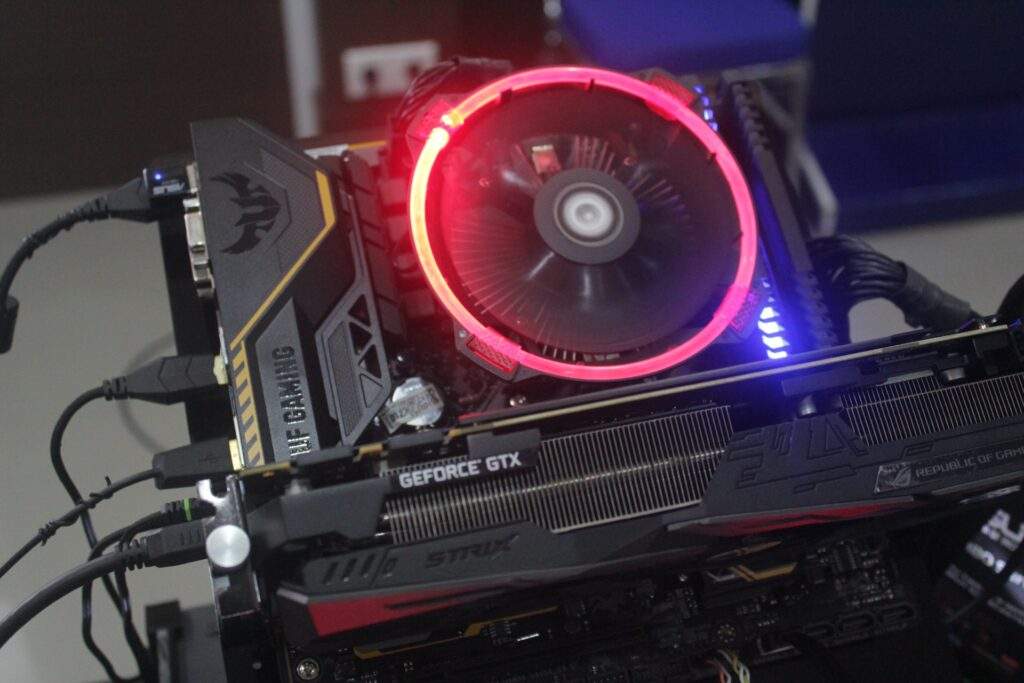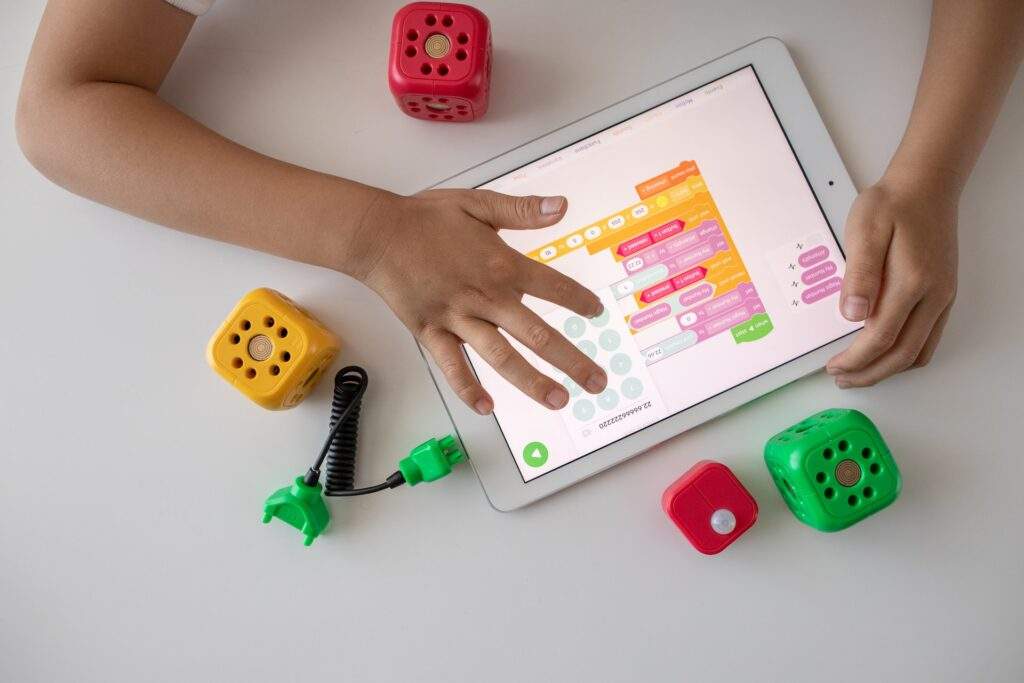Welcome to casinotips.io! In this article, we’re going to delve into the fascinating world of gaming and explore the profound impact video games have on our minds, bodies, and society as a whole. From cognitive benefits to social interactions, gaming has evolved into a powerful force that shapes our lives in numerous ways. Join us as we uncover the transformative power of gaming and its implications for individuals and society at large.
As we continue to explore the multifaceted aspects of gaming, one of the most important topics to cover is the potential benefits that can be gained from playing. Research has found that gaming can help to improve cognitive skills like memory, visual-spatial skills, and multitasking capabilities. Playing video games can also improve hand-eye coordination and sharpen motivation, problem-solving, and critical-thinking skills.
Engaging in video game play can also boost self-confidence and increase social skills, such as communication and collaboration. Even when not playing with others, gaming can provide a social outlet for people as they interact and work together on games. Additionally, playing video games together can promote deeper connections and help teach teamwork. With so many potential benefits to be gained, it’s no wonder why gaming has become increasingly popular throughout the world.
It has also been shown to improve problem-solving skills and enhance creativity, making it an ideal activity for older children and adults alike. As with any form of entertainment, it’s important to be mindful of how much time you’re spending gaming. By setting boundaries, it can be a great way to relax while also benefiting from all the advantages it has to offer.

1. Cognitive Advantages of Gaming:
Video games have been shown to offer cognitive benefits. Discuss how gaming can enhance problem-solving skills, improve hand-eye coordination, and foster strategic thinking. Explore the positive impact of gaming on memory, attention span, and multitasking abilities. Highlight specific game genres or mechanics that promote cognitive development, such as puzzle games, strategy games, or real-time decision-making in action games.
Video games have been heavily studied in regard to their effects on cognitive development, and the findings suggest only positives for gamers. Problem-solving skills can be enhanced by playing certain types of games, as most of the challenge lies in logistics and logical thinking. Furthermore, hand-eye coordination can be improved by game mechanics which rely on immediate responsivity to highly visual prompts or situations. Strategic thinking is honed through a variety of simulation and strategy games, which challenge players to take on complex roles and manage a variety of resources.
Games can also be used to improve memory, where players are presented with tasks that require rapid recall of certain objects or materials. Attention span is also increased through engaging gaming experiences, as the longer the game is played the more immersed in the story the player becomes. Multitasking abilities can be derived from several genres, where the player must corral multiple variables to win. This is especially relevant to real-time strategy games and classic arcade games which call for quick reflexes and a specialized multitasking approach.
There are numerous titles that employ mechanics to help foster cognitive development. Puzzle games are a prime example, as they call for the completion of a variety of tasks and objectives. Strategy games, such as Sid Meier’s Civilization, call for very high levels of tactical proficiency and executive functioning skills. Finally, many action games, such as Overwatch, heavily test a player’s ability to make real-time decisions and react to unpredictable situations. All in all, video games offer numerous cognitive benefits and should be embraced as powerful tools for mental enrichment.
In addition to specific title types, gaming technology has developed cognitively beneficial features, too. Virtual reality (VR) games that require a high degree of focus and hand-eye coordination can be beneficial for progressing skills; for example, VR games designed specifically for student surgeons enable them to practice medical procedures afloat operating-room environments, safely and realistically. Likewise, augmented reality (AR) mobile games, such as Pokémon GO, encourage gamers to explore the outdoors, heighten their navigational prowess by way of GPS coordinate, and socialize with other players at in-game meet-ups.
2. Power of Gaming as a Social Experience:
Contrary to the notion of gaming as a solitary activity, it has become an incredibly social experience. Discuss the rise of online multiplayer gaming, where players can connect with friends or strangers from around the world. Explore the importance of teamwork, communication, and cooperation in multiplayer games. Discuss the positive social interactions, friendships, and communities that can flourish within the gaming world.
Multiplayer gaming has opened up a world of possibilities for gamers, allowing friends or strangers from around the world to connect and compete, explore, strategize, and support one another. Teamwork, communication, and cooperation are essential components of successful multiplayer gaming and are key to ensuring the best possible gaming experience. Not only do these components of gaming encourage collaboration among players, but they also help to develop important social and problem-solving skills in gamers that can be carried out in other real-world scenarios.
In addition, multiplayer gaming has allowed for the formation of many friendships and supportive communities. With the support of mentors, coaches, moderators, and more, gamers can discuss their feelings, hang out with other gamers, and gain valuable tips from more experienced players. These positive social interactions not only help gamers form meaningful relationships with each other but also help gamers become better at the games they play.
In the end, multiplayer gaming has become a great way to interact and bond with people from all around the world. It has brought gamers together to help each other challenge their skills and work together to achieve a common goal. Thanks to the advancement of technology, the game industry is no longer a solitary experience — instead, gamers have the opportunity to join an entire community of like-minded people.
This opens up many possibilities to create lasting relationships and memories that can be shared no matter the geographical distance. Multiplayer gaming allows players to learn from each other, push each other to excel, and gain invaluable skills that can be used in everyday life. By forming friendships and setting up teams, gamers create a strong sense of unity and camaraderie. Thus, it can be said that without multiplayer gaming, the gaming industry would not be what it is today.

3. Gaming and Emotional Well-being:
Examine the emotional impact of gaming on individuals. Discuss how games can evoke a wide range of emotions, including joy, excitement, and even empathy. Explore the potential of games as therapeutic tools for emotional regulation and stress relief. Highlight the emergence of “serious games” that address mental health issues or encourage personal growth and reflection.
Analyze the impact of both the content of games and their play mechanics, including the positive effects of goal-setting, competition, cooperation, problem-solving, and learning. Examine the potential of games to provide players with powerful experiences and potentially, to improve their mental and emotional wellbeing. Investigate the implications of game addiction and the different risk factors related to it. Consider the impact of gaming on the social development of players, and examine the consequences of excessive gaming.
Further research into the potential of gaming to lead to better physical health, both through increased physical activity when playing active games, and through more restful outcomes when playing more relaxing titles, is also worthwhile. Studies have already begun to examine how changes in perception and behavior can be created in players by using particular mechanics and stimuli. Developments in the use of gamification in education and healthcare are offering a range of exciting opportunities in which games can potentially be used to improve lives. Therefore, a deeper understanding of the relationship between gaming and wellness is especially important.
By developing further insights into the intersection of gaming and health, researchers can identify the most beneficial gaming experiences and develop ways of optimizing them for the best possible outcomes. The key lies in looking at the activity surrounding gaming, and understanding how it affects the player mentally, physically, and emotionally. As technology continues to evolve, the opportunities for gaming to positively impact physical health, with the potential for direct comparison with traditional therapies and treatments, are growing.
4. Gaming and Physical Health:
While gaming is often associated with sedentary behavior, recent developments have introduced interactive technologies that promote physical activity. Discuss the impact of motion-based gaming systems, virtual reality, and augmented reality on physical health. Explore the potential of gamified exercise programs or exergaming to promote fitness and an active lifestyle.
Motion-based gaming systems, such as the Xbox Kinect and PlayStation Move, have been embraced by the gaming community as a way to make gaming more physical and active. These systems use motion-sensing cameras and controllers to track body movements and translate them into gameplay. Since these systems rely on body movements rather than controller buttons, they can encourage users to move around and engage in simulated physical activities, such as running, jumping, and waving. As a result, motion-based gaming has been used as a way to simulate physical activities, such as exercising, dancing, and martial arts.
Virtual reality (VR) and augmented reality (AR) technologies create immersive and interactive experiences for users. These technologies have been used to create exercise and fitness-based applications that make physical activities more engaging and entertaining. VR and AR technologies create realistic and dynamic environments for users to explore and interact with. As a result, these technologies can provide immersive experiences that can motivate users to be active and engage in physical movement.
Exergaming or gamified exercise programs incorporate the structure of gaming into exercise-based activities, such as running, rowing, or dancing. These programs often track user data and display it in a ranking system or leaderboard to simulate a game-like experience. This blend of physical activity and game elements can incentivize users to work toward a goal or challenge their friends and family. Additionally, exergaming programs may have educational aspects to them as well, teaching users about health fundamentals or proper form.
Overall, motion-based gaming systems, virtual reality, and augmented reality technologies can create immersive and interactive experiences that can encourage users to become more physically active. Furthermore, gamified exercise programs can provide users with an entertaining and motivating workout experience. Ultimately, the integration of these technologies and programs into our lives has the potential to promote fitness and an active lifestyle.

5. Gaming and Education:
Video games have also found their way into educational settings. Discuss the incorporation of educational games in schools and the potential for gamification in the learning process. Explore how games can engage students, enhance knowledge retention, and develop critical thinking skills. Discuss the importance of responsible gaming practices and the need for balance between educational gaming and other forms of learning.
The use of educational video games in schools can be transformative and has the potential to significantly improve student engagement and academic performance. Games used in schools should be age-appropriate, to provide students with positive reinforcement for their learning, engage and developing problem-solving skills, and promoting retention of the material. Developers have started to create games more specifically geared towards educational content and outcomes. When used in combination with traditional instruction, educational games have the potential to improve performance in all areas of learning.
With the increasing potential for video games in education, it is important to consider the potential physical or emotional effects of gaming and the potential those effects have for students during school hours. Responsible gaming practices, such as limiting the amount of time spent playing games, and the use of parental control software over the content accessed, are integral for ensuring students are using educational games in safe and responsible ways. The incorporation of educational games within the classroom should not take the place of more traditional learning activities. Instead, it should be used in combination with other structured learning forms, to create a balanced learning environment and to maximize the potential gaming can have for student engagement and knowledge retention.
Furthermore, it is important to understand how different types of games can benefit students in different ways. Simulation games, for example, can provide students with practice in various problem-solving skills, such as problem identification, research, planning, data collection and analysis, and implementation and evaluation. On the other hand, games such as RPGs can provide students with opportunities to develop skills in collaboration, leadership, and communication. Ultimately, Teachers and educators alike must understand the various potential impacts of educational gaming and use it as an effective tool to help students build a strong foundation in the lifelong pursuit of knowledge.
6. Gaming and Cultural Influence:
Examine the cultural impact of video games on society. Discuss how games have become a prominent form of entertainment and storytelling, influencing popular culture, music, and fashion. Explore the rise of competitive gaming, also known as esports, and its emergence as a professional sport. Discuss the potential economic and career opportunities within the gaming industry.
Examine the effect video games have had on education and the various ways in which they have been used to help children learn and increase engagement in the classroom. Discuss how the gaming industry has changed as a result of technology advancements and how these developments have allowed for different types of gaming experiences.
Look at the potential of virtual and augmented reality within video games and their expected applications in professional and entertainment industries.
Virtual and Augmented Reality (VR/AR) has already taken the video game industry by storm, and it shows no signs of slowing down. In addition to the gaming industry, VR/AR also stands to revolutionize other sectors like medicine, engineering, sports, and entertainment. In the medical field, AR can be used to measure anatomical features, surgeries can be conducted remotely, and training simulations can be used to help medical personnel practice proper techniques. In engineering, AR can be used for industrial design and visualization to speed up and enhance the process. In sports, players can use AR to explore the landscape of a game, and training simulations can be used to replicate real-life situations. Finally, in the entertainment industry, VR and AR can provide immersive experiences that take watching movies and shows to the next level. As the technology continues to develop, it will open even more possibilities for this technology to be used, and industries will begin to see the potential.
Finally, evaluate the health effects of video games and how they may both positively and negatively influence physical and mental health outcomes.
Conclusion:
Video games have a far-reaching impact on our minds, bodies, and society. They offer cognitive advantages, foster social interactions, contribute to emotional well-being, and even promote physical health. Gaming has found its place in education and has influenced various aspects of popular culture. As we continue to explore the power of gaming, let us embrace its potential for positive transformation and responsible engagement. So, grab your controller, embark on exciting virtual adventures, and experience the limitless possibilities that gaming has to offer.
Video games are no longer just for entertainment and they continue to revolutionize the way we learn, shop, work, and play. We can use video games to sharpen our strategies, create connections, and cultivate creativity. We can participate in virtual events, travel to new worlds, and explore never-before-seen realms. We can train our brains, improve our vision, and challenge our reflexes.
No matter how we choose to engage with video games, let us remember that they can have a positive and powerful impact that reverberates throughout our lives.